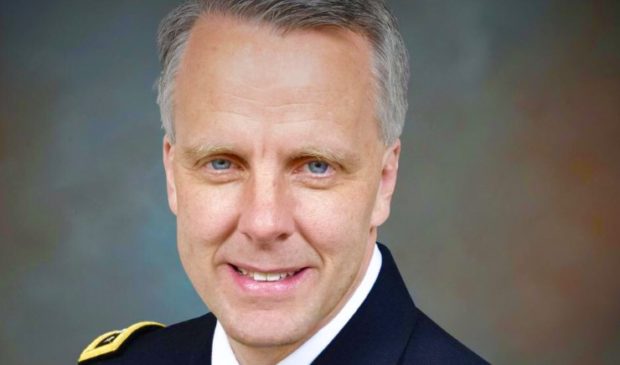2018: Manley takes the helm at APD
Thursday, December 20, 2018 by
Jessi Devenyns From a public safety standpoint, Austin police officers went through the wringer in 2018. Most of the year was spent without a contract with the city, in March a serial bomber created terror, and in July the entire fleet of Ford Explorer police cruisers was taken off the streets due to issues with carbon monoxide poisoning. But at the same time, the department gained a new chief.
Sworn in as police chief in June, Brian Manley had already been leading the department since December 2016 when he was sworn in as interim chief after Art Acevedo left to become chief of the Houston Police Department.
Chief Manley took some time out of his schedule to sit down with the Austin Monitor and reminisce about this year’s accomplishments and challenges and share what he is looking forward to in 2019.
While he was unable to point to a single accomplishment that defined his year, Manley said his team deserves as much credit as he does for everything that was achieved in 2018. “The men and women in this department and the service they performed during a very difficult year … and our officers showed up every single day, they did their job and they upheld their oath, and we kept this community safe,” he said.
As a result of their efforts, Chief Manley said that violent crime has gone down 5 percent. The one glaring exception was the devastating bombings that the city endured this spring.
As impossible as it seems, the bombings had a silver lining. “When our community was at its worst and our community was under attack, law enforcement was at its best,” explained Chief Manley. “We saw a level of cooperation between our federal, state and local partners that was unprecedented and that incident is seen as a national model now for how the local should work with their state and federal counterparts.”
Chief Manley said he was not satisfied with one nationally recognized accomplishment. Under his leadership, he explained that he hopes to redefine what policing means from a community perspective. “We’re really getting into policing at the neighborhood level, we’re really focusing on our data-driven police efforts and stepping a little bit into evidence-based police practices,” he said. Community policing has become a hot topic recently as APD has worked to reorient its image in the community. Part of this revamp came in the form of the newly minted Office of the Police Monitor, which uses transparency and interaction with the community in an effort to instill a sense of security in the public about reporting police misconduct.
Chief Manley noted that it became apparent the police department had lost touch with the community when the contract lapsed and testimony at Council was “very critical” of the relationship that APD had built with the Austin community.
To remedy that relationship and renegotiate the contract, Manley spent most of the year at the negotiation table. While he was working on that renewal, however, the police department was feeling the effects.
“It hit us operationally, it hit us in our ability to recruit, it hit us in our officers,” who at some points he said were losing over $1,000 a month. At the same time as pay scale was being affected, Manley noted it was also difficult to bring new recruits onto the force, an issue that APD has not traditionally had to face. “Being outside of a contract, to hire on to the police department you don’t necessarily know what your future looks like,” he explained.
Not only did the lack of certainty affect recruitment efforts, but according to Manley, it has also informed the overall health and wellness of the officers. Being a police officer is a tough job full of physical and emotional stress, but in Texas, there is no mandatory barometer to track an officer’s mental state. Police officers in the state are required to go through a psychological exam prior to being licensed, but after that, there are no required follow-up assessments.
In an effort to change that, Chief Manley said, “We are doing a lot to build a program here that will be a nationally recognized ‘best practices’ in officer health and well-being.” Part of this program includes implementing a health and wellness committee to give officers periodic assessments and assistance in dealing with the side effects of the job rather than turning to “destructive conduct.”
With so many irons in the fire, it looks like Chief Manley will have a busy year going forward as he tries to continue his programs in his second year as chief. To sum up his agenda for the new year, the chief said, “We’re just going to continue our efforts to keep violent crime down in the city. We’re going to continue to push the envelope for evidence-based policing and data-driven practices. And we’re going to continue our investment in community policing and trying to better it and again stay true to our core mission of trying to keep our community safe.”
Photo by Austin Police Department.
The Austin Monitor’s work is made possible by donations from the community. Though our reporting covers donors from time to time, we are careful to keep business and editorial efforts separate while maintaining transparency. A complete list of donors is available here, and our code of ethics is explained here.
You're a community leader
And we’re honored you look to us for serious, in-depth news. You know a strong community needs local and dedicated watchdog reporting. We’re here for you and that won’t change. Now will you take the powerful next step and support our nonprofit news organization?






